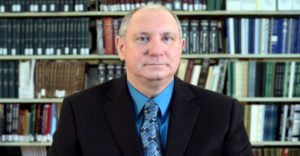Understanding Consciousness After Death: Insights from Dr. Jeffrey Long’s Research

In a thought-provoking episode of Skeptiko, hosted by Alex Tsakiris, Dr. Jeffrey Long delves into the enigmatic realm of near-death experiences (NDEs). His extensive research, detailed in his 2010 publication “Evidence of the Afterlife,” presents groundbreaking insights that challenge our understanding of life, death, and consciousness. This blog post expands on the key points of their discussion, exploring the intersection of science, spirituality, and the afterlife.
Evidence of Consciousness Beyond Death
Dr. Long’s research posits a controversial yet fascinating idea: consciousness may survive physical death. This concept, central to his book, is based on countless accounts of NDEs. These experiences, often marked by vivid perceptions and profound personal transformations, suggest a form of consciousness independent of the physical body. This assertion has ignited debates within the scientific community, questioning the materialistic view of consciousness.
The Scientific Study of Near-Death Experiences
Despite his primary role as a radiation oncologist, Dr. Long’s passion for understanding NDEs has led him to apply rigorous scientific methods to study these phenomena. He emphasizes the importance of approaching NDE research with the same analytical rigor as any other scientific inquiry. This approach is a direct response to skeptics who often dismiss NDEs as anecdotal or lacking empirical evidence.
Vision in the Blind: The Case of Vicki
One of the most compelling cases Dr. Long discusses involves Vicki, a woman born blind who reported visual experiences during her NDE. This remarkable account challenges conventional understandings of perception and consciousness, particularly the notion that visual experiences are solely the result of brain activity. Vicki’s case opens new avenues for debate among neuroscientists and psychologists about the nature of consciousness and perception.
Validating Near-Death Experiences
Dr. Long stresses the meticulous nature of his research to validate NDEs as authentic experiences. By thoroughly examining each case, he aims to ensure that the NDEs studied are not merely hallucinations or fabrications. This methodology addresses one of the primary criticisms levied against NDE research, that it relies too heavily on subjective reports.
Near-Death Experiences Under General Anesthesia
A particularly intriguing aspect of Dr. Long’s research is the occurrence of NDEs under general anesthesia. In such cases, patients report experiences of consciousness when they are medically considered unconscious. This phenomenon contradicts established medical knowledge, suggesting that our understanding of consciousness may be more complex than previously thought.
Challenges in Near-Death Experience Research
The conversation highlights a significant issue in NDE research: some scholars write about these experiences without ever interacting with individuals who have had them. This disconnect raises questions about the authenticity and depth of their research. Dr. Long’s critique suggests a need for more experiential involvement in studying NDEs to truly understand their nature and implications.
Science Meets Spirituality
Dr. Long’s work blurs the lines between science and spirituality, particularly in his exploration of concepts traditionally associated with religion, such as the existence of God. This integration of spiritual elements into scientific inquiry represents a paradigm shift, challenging the traditional separation of these domains. Such research invites a broader debate on the role of spirituality within scientific discourse.
See Also: Dr. Jeffrey Long Biography
In conclusion, Dr. Jeffrey Long’s research, as discussed in the Dr. Jeffrey Long – God and the Afterlife – Science & Spirituality Collide |327| episode of Skeptiko, offers a unique perspective on the nature of consciousness and the possibility of an afterlife. His scientific approach to studying near-death experiences not only provides fascinating insights but also encourages a more open-minded consideration of the interplay between science and spirituality.





